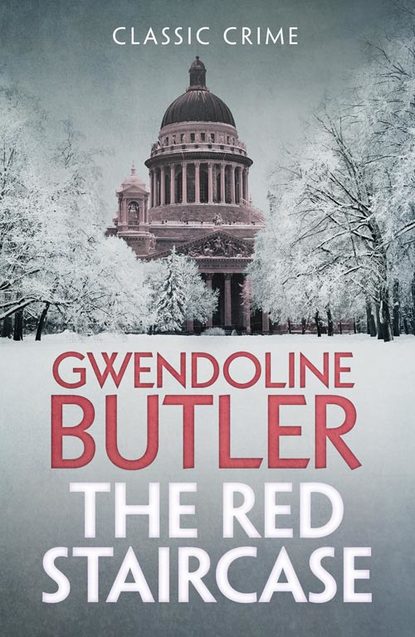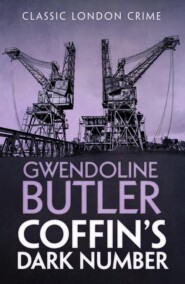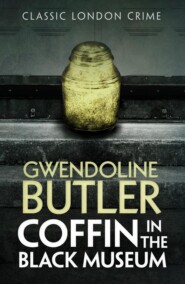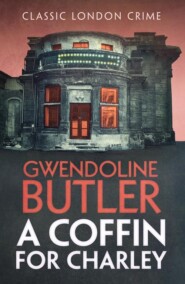По всем вопросам обращайтесь на: info@litportal.ru
(©) 2003-2024.
✖
The Red Staircase
Автор
Год написания книги
2018
Настройки чтения
Размер шрифта
Высота строк
Поля
Halfway through the evening a tall, dark-haired young man walked quietly across the room to where I was sitting and introduced himself. ‘I am Peter Alexandrov, Dolly’s brother.’ He was fastidiously and beautifully dressed and I caught the faint scent of verbena as he bowed over my hand. No one could have been more unlike Patrick, but he was the first man who had caught my attention at all since my disaster. ‘I should think he knows how to interest women all right,’ I thought to myself as I talked to him.
Our conversation was light and easy, nothing important was said, but I felt I had made a friend. When he rose to go I saw him catch Dolly’s eye and a look passed between them. A question in hers, and an assent in his. I could not mistake it. He had wanted to meet me, I was sure of it.
Someone had been watching us. I turned quickly. A small dark-clad figure crossed the room diagonally, walking towards the door. I recognised Mademoiselle Laure. So she had been here all the time.
An irrational vexation possessed me. We were two of a kind in this household, Mademoiselle and I, and yet she seemed to avoid me, whereas I had already made tentative explorations to see if I could find her room.
‘There goes Mademoiselle Laure.’ I pointed her out to Ariadne. ‘I didn’t know she was here.’
‘Oh, she came to listen to the music, I suppose,’ said Ariadne. ‘She is very fond of music.’
If she had been listening, then she was the only one. The musicians had played sadly, as if they never expected an audience. Now they had packed up their instruments and were filing out, one after the other like the Three Blind Mice.
‘I suppose she has a room somewhere near mine?’ I asked.
‘Mademoiselle Laure? Oh, I think she is in a room on the next floor,’ said Ariadne vaguely, as if she did not know and did not care. It was all very unlike the treatment of me.
The next day Dolly Denisov clapped her hands and announced that Ariadne would be taking me on a tour of the city. Was I rested? Was I comfortable? Good. To be introduced to St Petersburg was a necessary preliminary to my duties.
‘Duties,’ I thought. There seemed to be no duties, only pleasures.
We duly set off in their large motor-car, with Ariadne pointing out the sights. We had passed this way yesterday. ‘There is the Rouminantiev Garden ― so beautiful. One day we must walk there. Oh, all those buildings are part of the university, but that one over there covered with mosaics is the Academy of Arts. Mamma says it is unsightly, but I rather like it. Oh, and that’s the Stock Exchange – looks as if it was hewn out of solid rock, doesn’t it?’ She spoke through the speaking tube to the footman, who then spoke to the chauffeur. ‘Go on to the Peter and Paul Fortress, then the Cathedral, and then down to the Nevsky Prospect.’ She turned to me. ‘That way we’ll go past the Vladimir Palace and the Winter Palace. You’ll like the Nevsky Prospect, the shops are gorgeous.’ And she giggled. She and her mother had the same sort of delightful, rumbling little laugh.
Ariadne had her orders, I decided, and the tour which looked so artless had been carefully thought out. The city was laid out before me in its great beauty, with everywhere trees and water, and buildings either of rich red brick or stone apricot-coloured in the sunlight. The sombre bulk of the Fortress of St Peter and St Paul, Kazan Cathedral, the Winter Palace itself, I saw them all. And at the centre was the Nevsky Prospect. ‘It is the longest and widest street in the world,’ said Ariadne proudly. ‘Five miles from the Alexander Gardens to the Moscow Gate.’
I was struck by the width of the street, too, the pavements looked as if a dozen people could have marched up them side by side. Very soon Ariadne stopped the car.
‘Now we will walk,’ she said, and took my hand tightly in hers and led me along. ‘This is the glittering world, Miss Rose. Perhaps I shall have to renounce it one day, who knows what may happen? But while it is here, let us enjoy it. Look, here is Alexandre’s.’ She drew in a deep breath. ‘Oh, I adore Alexandre’s.’
Together we stared at the window full of expensive and elegant objects – jade boxes, scarves of Persian silk, chains of gold and ivory, a delicate parasol of white lace with a diamond-studded handle. Never had I seen anything like it. By comparison Jenner’s in Prince’s Street did not exist.
‘Do you have anything like this?’
I shook my head. ‘In London, perhaps. Not in Edinburgh.’
Past Alexandre’s was Druce’s, the ‘English Shop’, where were sold English soap and toothpaste and lavender water – which was much used by the men. After that we went into Wolff’s, the great bookshop, where Ariadne lavishly bought me several books about Russia and a copy of the London Times.
‘Across the road,’ she said in a low voice, ‘is Fabergé’s shop. Even I hardly dare look in there, it is so expensive. Old Madame Narishkin spent the whole of her husband’s salary there in one day, just buying two presents for his birthday. Or that’s the story, anyway.’ She gave that giggle, so like her mother’s. ‘The old goose is silly enough for it.’
A golden-voiced clock somewhere chimed the hour, and it reminded Ariadne of something. ‘Let’s go to Yeliseyeff’s,’ she said. ‘I have to order some ryabchik for Mamma – tomorrow she gives a dinner party.’
Yeliseyeff’s, as I was to discover, was a large provision store filled with exotic delicacies from all over the world: great jars of crystallised apricots and plums, drums of mysterious marrons glacés, bowls of strawberries and peaches, sacks of dark brown nuts. Seasons had no place in Yeliseyeff’s calendar, any fruit could be had at any time.
Ariadne ordered the little game birds for her mother from a smiling assistant, added to it the request for a box of praliné almonds for herself, and then led me to the grand treat of the morning. ‘Coffee and ices at Berrin’s,’ she announced.
Berrin’s was the French confiserie in Morskaya Street, just off the great Nevsky Avenue, and thither we were driven in the car which had all this time been following us at a discreet distance. There, at a round mahogany table in the window, we ate tiny sponge cakes and ice-cream served to us by a tall Frenchwoman dressed in brown and black, a colour combination I had never seen before – and it would certainly have looked dowdy enough at Jordansjoy – but which I now realized was of great elegance.
‘If this is to be my life in St Petersburg,’ I thought, ‘I am on Easy Street.’
An indeed, during those first few days in St Petersburg I was beginning to see a little of what lay behind Edward Lacey’s reservations about Russian society; it would be easy to be corrupted, to sink back into a comfortable, idle life. I do not deny that for a little while I indulged myself with daydreams about what it would be like to be a femme du monde like Dolly Denisov, with nothing to do except mind my clothes and my appearance. Delicious fantasies they were, too, but not for long. I delighted in Dolly Denisov, but I did not wish to be her, it was not in my nature to live like that. Besides, even Dolly had a conscience. Had she not asked me to come here to help with the health of her peasants? So before long I asked, rather shyly, if I could be introduced to this side of my duties.
‘Oh, aren’t you happy with Ariadne, then?’ she asked in some surprise.
‘But very. She’s a delightful girl, and I love going about the town with her. But I long to get on with the medical work,’ I said eagerly.
‘Yes of course, I can understand that.’ She gave a severe look at one of her own beautifully manicured hands, as if that hand was anxious to get out and cleanse wounds and tie bandages. ‘But it’s difficult till we go to Shereshevo, which will not be until a little later. It is there you will work, you see. Still, I don’t see why you couldn’t make a start.’ She considered. ‘Would you like to go and see one of the great St Petersburg hospitals?’
‘Oh, I would.’
‘Then I’ll arrange it. Let me see, tomorrow won’t do; I’m fully engaged. Nor the day after ― fittings, you know, for one or two new little dresses. But the day after that.’ She consulted her diary. ‘Yes, the morning of that day will do beautifully. Would you like to see the hospital of St George? I know the doctor, the medical administrator there, and he will arrange it for us.’
It wasn’t quite what I had had in mind; from my Edinburgh experience I knew that hospital inspections by a fashionable party of people, even those blessed by the noblest of motives, were not relished by busy doctors and nurses. Nor much by the sick themselves, I suspected. ‘If it’s all right,’ I said doubtfully.
‘You mean, for the doctors, the patients?’ Dolly’s eyebrows arched in surprise. ‘Oh, but they will love it.’
And when we got there I found to my surprise that this was true, at least of the patients. They really did enjoy being visited; my first intimation – one among many – of the differences between the Russian spirit and what I was used to at home.
We drove out to the hospital in Dolly’s car, travelling for about half an hour, first through the prosperous heart of the city with its great shops and palaces, then into a more working-class district. I looked about me with interest.
‘Well?’ said Dolly, adding with some irony: ‘A charming area, is it not?’
‘It looks poor enough,’ I said bluntly, ‘and it reminds me more of Glasgow than Edinburgh, with its great tenement blocks alternating with factories.’
‘Yes, there is a lot of industry here.’ Dolly put her hand on my arm. ‘Over there is a factory that should interest you.’ We were passing a high brick wall which protected a bleak stone building with few windows and those set high. ‘It belongs to your godfather, Erskine Gowrie.’
I stared at it as we sped past. ‘What do they make there? What kind of factory is it?’
After a moment’s pause, Dolly said: ‘Some sort of engineering factory, I believe.’
‘Engineering, is it? I thought I was told it was a chemical factory.’
‘I may have got it wrong,’ said Dolly easily. ‘It’s the sort of thing I do get wrong.’
‘I wonder if I could see over it.’
‘So you are interested in factories as well as hospitals?’ said Dolly, with a glint of amusement.
‘In that one, anyway, as it belongs to my godfather. He might let me in. Although he seems to have forgotten my existence,’ I added.
‘I believe he sees no one and is quite withdrawn. Senile, you know. With some people old age goes to the legs, and with some the mind.’
As the factory disappeared from my sight I had time to wonder who ran the factory if my godfather was beyond doing so. I was just about to ask Dolly this question when she said: ‘And here is the hospital.’
As far as looks went, there was not much to choose between my godfather’s factory and the hospital, for both were bleak, grey buildings nestling behind high walls; the hospital had more windows, that was all. But in my limited experience all hospitals looked like that outside, more or less; it was the inside that counted and showed its quality.
This hospital was simple enough inside, but well run. Armed with my introduction from Dolly, I was made welcome and taken to the dispensary, where drugs and equipment were laid out for me to see. I made a quick list of what was easily available and what I could order. They seemed to have most of the medicines I would have used at home. But what struck me about the hospital was a looseness of discipline; the staff and patients seemed almost jolly, I actually heard laughter and singing. When I thought about it I could see that happiness must promote healing. I was learning fast about the strange country that was Russia. I could see already that in many ways it was a harsh society, and yet there were always the unexpected things – the gaiety of the people, their charm – that delighted me. And somehow distracted me, too, from focusing on the grimmer realities.
On the way back home we drove by a different route and did not pass my godfather’s factory, which disappointed me. That was all I felt then – curiosity, and disappointment. But perhaps there were already questions forming in my mind: What does this forbidding place produce? What connection to me, exactly, is Erskine Gowrie? Am I to meet him? And if not, why not? Perhaps there was already growing in me a faint unease.











